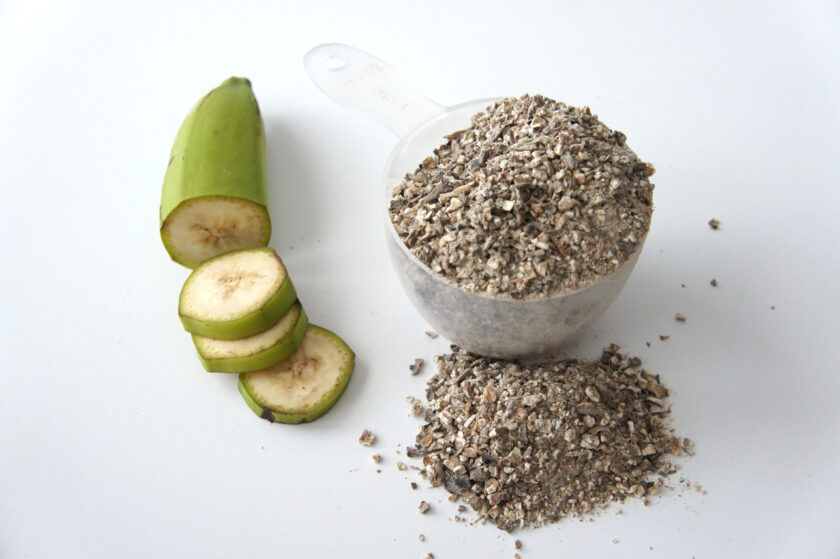
The Benefits of Resistant Starch
The proper nutrition of horses is a critical aspect of their overall health and performance. Among the various components of equine diets, starch has traditionally been employed as a key component in equine diets for providing energy to the work, racing and show horse. However, modern scientific research has largely brought under scrutiny the traditional high grain-based diets fed to working horses for centuries, shifting its focus to a more natural, forage-based feeding approach, appropriate for many of today’s less heavily exercised pleasure and performance horses.
However, not all starches are created equal!
Here, we’ll delve into the different types of starch found in a horse’s diet and shed light on the emerging star – resistant starch – and its noteworthy benefits for equine well-being.
Understanding Starch in Equine Diets
Starches are complex polysaccharides, or stored plant sugars, and can be broadly categorized into two types based on their digestibility:
- Common or Non-Resistant Starch (to be avoided in excess)
- Resistant Starch
Common or Non-Resistant Starch, such as that found in cereal grains, is a carbohydrate that breaks down in the horse’s foregut, converting to glucose and causing a rise in blood sugar levels. Many horse care experts agree that horses are healthiest when fed a diet rich in fiber with balanced nutrient levels and a low starch content.
The Rise of Resistant Starch – the Secret Superpower
Resistant starch is garnering attention in the equine nutrition world for its unique properties and potential health benefits. Unlike non-resistant starch, resistant starch is not readily broken down in the small intestine. Instead, it reaches the hindgut, where it undergoes fermentation by beneficial bacteria. Because of its unique properties, scientists actually consider resistant starch to be a kind of dietary fiber.
Possible Benefits of Resistant Starch for Horses
Gut Health Support
- Resistant starch serves as a prebiotic, promoting the growth and activity of beneficial gut bacteria. This fermentation process produces short-chain fatty acids, such as butyrate, which are vital for maintaining a healthy gut environment. A well-balanced gut microbiota is associated with healthy digestion, nutrient absorption, and overall gastrointestinal function in horses. Read more about maintaining a health gut here.
Healthy Weight Maintenance
- Resistant starch may help to support a healthy weight for horses requiring weight management. The fermentation of resistant starch produces fewer calories compared to the digestion of traditional starch sources. This can be beneficial for horses at low levels of activity or for the “easy keeper”, helping them maintain a healthy body condition.
Performance
- Resistant starch, as previously mentioned, is broken down in the digestive tract at a slower rate than non-resistant starch. This translates to a more gradual release of energy than that associated with the more common sources of starch in equine diets, providing the performance horse with a steady release of glucose over an extended period.
This is particularly relevant for horses engaged in demanding activities, such as racing or competitive sports.
Additionally, the rapid conversion of polysaccharide into glucose connected with common starches, which can raise blood sugar levels dramatically within a short period, are commonly reported to generate a temporary “grain-high” or “hot” behavior in horses. Resistant starch’s slower rate of glucose conversion in the digestive tract helps to support a regulated and normal rate of digestion and energy utilization.
Sources of Resistant Starch
Of the many sources of resistant starch, green bananas are known to be one of the richest.
Once a banana ripens and becomes yellow, the resistant starch converts into sugar that can cause insulin spikes.
Un-ripened green bananas however, contain an abundance of resistant starch and provides many other important vitamins and minerals, making it the perfect way to support hind gut function in horses.
B-Complete consists of 100% natural dried, green bananas. So… look no further to start including a fantastic source of resistant starch in your horses diet.
*these statements are for informational purposes only. Resistant starch and any product containing resistant starch, including B-Complete, is not intended to help prevent, treat, or cure any disease or abnormal condition in horses. We at Banana Feeds Australia always recommend that any diet plan for horses with disorders be discussed first with your horse’s veterinarian or equine nutritionist.





